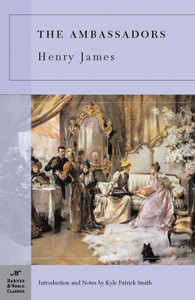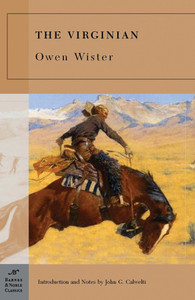The Wings of the Dove, by Henry James, is part of the Barnes & Noble Classics series, which offers quality editions at affordable prices to the student and the general reader, including new scholarship, thoughtful design, and pages of carefully crafted extras. Here are some of the remarkable features of Barnes & Noble Classics:
New introductions commissioned from today's top writers and scholars Biographies of the authors Chronologies of contemporary historical, biographical, and cultural events Footnotes and endnotes Selective discussions of imitations, parodies, poems, books, plays, paintings, operas, statuary, and films inspired by the work Comments by other famous authors Study questions to challenge the reader's viewpoints and expectations Bibliographies for further reading Indices & Glossaries, when appropriateAll editions are beautifully designed and are printed to superior specifications; some include illustrations of historical interest. Barnes & Noble Classics pulls together a constellation of influencesbiographical, historical, and literaryto enrich each reader's understanding of these enduring works.
One of three masterpieces from Henry Jamess final, major phase, The Wings of the Dove dramatizes the conflict between nineteenth-century values and twentieth-century passions. Born to wealth and privilege, Kate Croys mother threw it all away to marry a penniless opium addict. After her mothers death, Kate is offered an opportunity to return to the opulent lifestyle her mother gave upon one condition. Kate must renounce the man she loves: the witty, good-looking, but poor, Merton Densher. Reluctantly agreeing, Kate finds herself becoming friends with the worlds richest orphan, Millie Theale. When Kate learns that Millie is dying, she devises a plan of dizzying possibility for herself and Merton that should solve all their problems, but instead leads them down a path strewn with tragic, unexpected consequences.
First published in 1902, this rich and intriguing novel has lost none of its fascination and relevance a century later.
Bruce L. R. Smith is a Fellow of the Heyman Center for the Humanities of Columbia University. He has served as Professor of Public Law and Government at Columbia, Senior Fellow at the Brookings Institution, and as an official in the U. S. State Department. He is the author or editor of sixteen scholarly books, and lectures widely on public affairs and literary topics.







